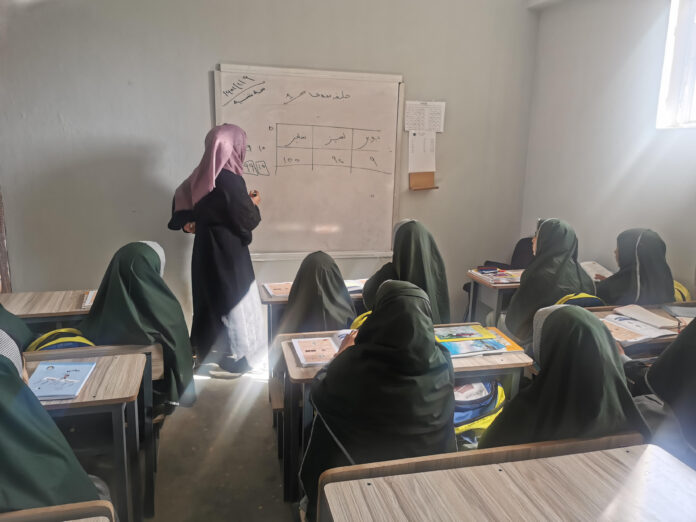A delegation of Muslim scholars from the Organization of Islamic Cooperation (OIC) has reminded Afghanistan’s government on that education is an “Islamic obligation for both men and women.”
They discussed the issue with Afghan Minister of Education Mawlawi Habibullah Agha and Minister of Higher Education Mawlawi Nida Muhammad Nadim in the capital Kabul, said a statement by the OIC.
“During the meetings, both sides stressed that education is an Islamic obligation for both men and women, with the consensus of the Ummah (Muslim community) scholars,” the statement added.
According to the OIC, the delegation of Muslim scholars and thinkers arrived in Kabul last Thursday to meet with Afghan scholars along with ministers and officials of the government.
The delegation “stressed the need to exert all effort to enable boys and girls to enroll in all levels of education and all specializations needed by the Afghan people at this critical stage in their history,” said the statement.
Islamic Emirate officials briefed the delegation on the efforts exerted by the administration “in reviewing curricula and providing a safe environment for girls’ education throughout the country,” it said.
It added that the scholars “confirmed the readiness of the OIC member states to provide all possible support in this regard.”
Subscribe to our newsletter and stay updated on the latest news and updates from around the Muslim world!
Notably, the delegation met with Afghan Interior Minister Khalifa Sirajuddin Haqqani on Monday, who said education was a “shared need of Muslims” and had urged “patience” on the issue of girls’ education in the war-torn nation.
Meanwhile, the OIC Secretary-General’s envoy for Afghanistan, Tarig Ali Bakhit, met on Wednesday with Afghan Foreign Minister Mawlawi Amir Khan Muttaqi in Kabul.
They discussed the outcome of the visit of the OIC delegation of scholars to Afghanistan, said a separate statement by the OIC.
It said the delegation held several meetings with Afghan scholars and officials on issues of utmost importance to the OIC, such as tolerance in Islam, girls’ education and women’s work.
Since coming to power in August 2021 the Islamic Emirate has been gradually implementing laws which they say conform to Islam’s rulings on gender issues.
Last December the Afghan authorities banned women from university education. Teenage girls have still not returned to school in most of the country, despite promises to allow them to do so.
While some women still work in sectors such as healthcare and education, most were told not to go to work after the Islamic Emirate was established.
Western diplomats have indicated to the authorities that resuming development funding for a country in deep economic crisis “depends on the treatment of women improving.”






![The History of Sylhet and British Bangladeshis [Short Film]](https://5pillarsuk.com/wp-content/uploads/2024/11/IMG_3518-218x150.png)














